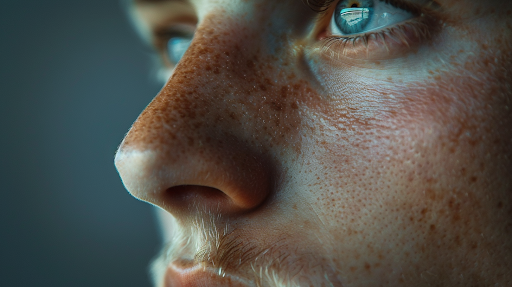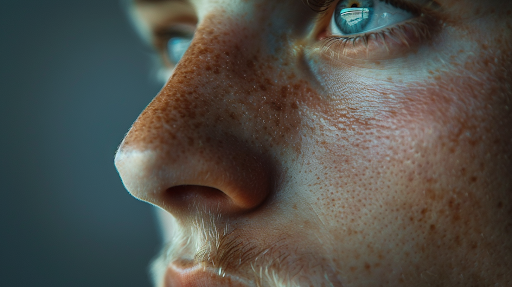
Does Insurance Cover Rhinoplasty? What You Need to Know
Does Insurance Cover Rhinoplasty In 2024?
Rhinoplasty, commonly known as a nose job, is a popular surgical procedure in the United States for those seeking to improve the appearance or function of their nose. While many individuals consider this procedure for cosmetic reasons, others undergo rhinoplasty to address medical issues such as breathing difficulties or structural abnormalities. A common question arises: does insurance cover rhinoplasty? The answer largely depends on the purpose of the surgery.
In this blog post, we explore the factors that determine insurance coverage for rhinoplasty, including the distinction between cosmetic and medically necessary procedures, the role of insurance companies, and tips for navigating the insurance process to ensure you receive the coverage you need. Understanding these aspects can help you make informed decisions about undergoing rhinoplasty and managing the associated costs.

Are You Looking for Reliable Nasal Reconstructive Treatments in New York City?
If you’re seeking expert nasal reconstructive treatments in New York, you’ve come to the right place. At our clinic, led by the esteemed Dr. Moustafa Mourad, we offer advanced and reliable solutions for both cosmetic and functional nasal issues. With a reputation for excellence, Dr. Mourad is internationally recognized for his expertise in rhinoplasty surgery, including both cosmetic and functional procedures. His extensive experience includes:
- Cosmetic Rhinoplasty: Perfect for those looking to enhance the shape and contours of their nose to achieve their desired aesthetic appearance. Dr. Mourad addresses issues like a crooked nose, bulbous nose, etc.
- Functional Rhinoplasty: This surgical procedure is designed to improve the function of the nose, primarily by addressing structural issues that may cause breathing difficulties. It aims to correct problems such as a deviated septum, nasal valve collapse, or other anatomical abnormalities that can impede airflow. This procedure can significantly enhance a patient’s quality of life by alleviating symptoms such as chronic nasal congestion, snoring, and sleep apnea.
Our practice offers comprehensive consultations to understand your specific needs and goals. We emphasize clear communication and professional care to ensure you are well-informed throughout the process. For more information or to schedule an appointment, call us at 212-832-0444 or send us an online message.
The Differences Between Cosmetic and Functional Rhinoplasty Surgery
Rhinoplasty is a highly sought-after procedure within the realm of facial plastic surgery. If you’re interested in cosmetic surgery for medical reasons, then understanding the differences between cosmetic and functional rhinoplasty is essential.
Cosmetic Rhinoplasty
Cosmetic rhinoplasty, also known as aesthetic rhinoplasty, primarily focuses on enhancing the external appearance of the nose. The goal is to create a nose that complements the patient’s facial features and improves overall facial harmony. Here are some common reasons for seeking cosmetic rhinoplasty:
- Shape and Contours: Altering the shape, size, and contours of the nose to achieve a more aesthetically pleasing look. This includes correcting a crooked nose, narrowing a wide nasal bridge, or refining a bulbous tip.
- Nasal Bone Adjustments: Modifying the nasal bone structure to address issues such as a larger nose or abnormal contours.
- Cartilage Changes: Reshaping or repositioning the cartilage for a more balanced appearance.
- Cosmetic Enhancements: Patients often seek this type of procedure for cosmetic reasons such as achieving a perfect nose, improving a crooked appearance, or correcting birth defects.
Cosmetic rhinoplasty procedures are typically elective surgeries, meaning they are not covered by insurance.
See Before and After Patient Photos
Functional Rhinoplasty
Functional rhinoplasty is designed to improve the function of the nose, often addressing medical concerns and improving quality of life. The primary goal of functional rhinoplasty is to correct issues that impair breathing and nasal function. Common reasons for functional rhinoplasty include:
Nasal Obstructions
- Nasal Valve Collapse: This condition occurs when the sidewalls of the nasal passages collapse inward, restricting airflow. Functional rhinoplasty can help by reconstructing or reinforcing the nasal valves to ensure proper airflow.
- Deformed Nasal Passages: Structural abnormalities or injuries can deform the nasal passages, causing significant breathing difficulties. Surgery can correct these deformities to restore normal airflow.
- Correction of Nasal Obstruction: General nasal obstructions can arise from various factors such as enlarged turbinates or nasal polyps. Functional rhinoplasty can address these issues by removing or reducing obstructions to enhance breathing.
Nasal Fractures
- Broken Noses: Nasal fractures, often resulting from trauma or injury, can lead to both functional and aesthetic issues. Functional rhinoplasty repairs the fractured nasal bones and cartilage, restoring the nose’s proper shape and function.
- Nasal Trauma: Beyond fractures, trauma to the nose can cause internal damage affecting nasal breathing. Functional rhinoplasty addresses these issues, repairing any structural damage and ensuring the nose functions correctly.
Septoplasty
- Deviated Nasal Septum: The septum is the cartilage and bone structure that divides the nasal passages. A deviated septum can block airflow and cause chronic nasal congestion. Septoplasty, often performed alongside functional rhinoplasty, straightens the septum to improve airflow and reduce breathing difficulties.
- Enhancement of Nasal Breathing: By correcting a deviated septum, septoplasty helps enhance nasal breathing, contributing to overall respiratory health and comfort.
Congenital Nasal Defects
- Congenital Nasal Deformities: Some individuals are born with nasal defects that affect both appearance and function. These congenital issues can include underdeveloped nasal structures or malformed nasal passages.
- Addressing Congenital Nasal Defects: Functional rhinoplasty can correct these congenital defects, improving both the function of the nasal passages and the appearance of the nose.
Chronic Conditions
- Nasal Inflammation: Chronic nasal inflammation can obstruct the nasal passages and impair breathing. Functional rhinoplasty may be necessary to address persistent inflammation and restore normal function.
- Chronic Allergies: Allergies can lead to chronic nasal congestion and inflammation. Functional rhinoplasty can help alleviate these symptoms by correcting structural issues that exacerbate allergy-related breathing problems.
- Sinus Inflammation: Ongoing sinus inflammation can affect nasal function. In some cases, addressing sinus issues through functional rhinoplasty can provide relief and improve overall nasal health.
Functional rhinoplasty can be considered a medical nose job. It’s essential to have documentation demonstrating the medical necessity for rhinoplasty insurance coverage. Insurance coverage can extend to conditions like nasal trauma and Chronic nasal issues.
Combined Rhinoplasty
In some cases, patients require a complex rhinoplasty that addresses both cosmetic and functional issues. This type of surgery provides a double benefit by enhancing the nose’s appearance while also correcting functional problems. For instance, a revision rhinoplasty might be needed to refine both the exterior shape and improve nasal passages post-surgery.
Revision Rhinoplasty in New York City
Can You Get Insurance Coverage for a Nose Job in NYC?
Yes, you can potentially get insurance coverage for a nose job in NYC, but it depends on the nature of the procedure. If the rhinoplasty is performed for medical reasons, such as correcting nasal obstructions, repairing nasal fractures, or addressing breathing issues caused by a deviated septum, it can be covered by insurance. This is because these procedures are aimed at improving nasal function and overall health.
To determine if your rhinoplasty can be covered by insurance:
- Consult with a Specialist: Speak with a board-certified rhinoplasty surgeon to evaluate whether your procedure is considered functional or cosmetic.
- Document Medical Necessity: For functional procedures, ensure you have documentation from your surgeon supporting the medical need for surgery.
- Contact Your Insurance Provider: Reach out to your insurance provider to understand your policy’s coverage for functional rhinoplasty and get pre-authorization if needed.
Schedule a Rhinoplasty Consultation
How to Prepare for Medical Rhinoplasty
Medical rhinoplasty addresses issues that impact the health and functionality of the nose. Preparing for this procedure involves careful consideration of medical, financial, and logistical aspects.
1. Consult with a Board-Certified Plastic Surgeon
Schedule an initial consultation with a board-certified plastic surgeon who specializes in medical rhinoplasties. During this visit, discuss your specific health issues. Ensure your surgeon has substantial experience with functional rhinoplasty and is well-versed in treating functional portions of the nose. Their expertise will be crucial in addressing your health concerns and improving nasal function.
2. Evaluate Financial Aspects
Costs of medical rhinoplasty may be influenced by the extent of surgical procedures and the need for additional treatments. Verify with your insurance company or insurance service provider about coverage for medical rhinoplasty. Functional procedures are often covered if they address health-related issues such as impaired nasal breathing or congenital defects.
3. Prepare Medical Records and History
Collect and organize your medical records, including any previous treatments or surgeries related to your nasal health. Provide a detailed account of your medical history, including any current health issues like chronic nasal inflammation or allergies. This background is crucial for assessing your candidacy for surgery and anticipating any potential complications.
4. Address Functional and Health Concerns
Clearly articulate your exact goals for the surgery, whether they involve improving nasal breathing, addressing chronic sinus issues, or correcting birth deformities.
5. Understand the Recovery Process
Educate yourself about the recovery process following medical rhinoplasty. This includes the expected timeline for healing, potential side effects, and restrictions during the recovery period. Follow your surgeon’s instructions for post-operative care diligently. This includes managing any swelling, adhering to follow-up appointments, and taking prescribed medications to support a smooth recovery.
6. Legal and Administrative Considerations
Prepare necessary documentation for your insurance provider to ensure that your medical rhinoplasty is covered as a medical necessity. This might include detailed notes from your surgeon outlining the health-related reasons for the procedure.
Rhinoplasty Services in New York City
Dr. Moustafa Mourad, a distinguished facial plastic surgeon in New York City, offers exceptional expertise in both cosmetic and reconstructive rhinoplasty. With dual board certifications and a prominent role as Fellowship Co-Director at the American Academy of Facial Plastic & Reconstructive Surgery, Dr. Mourad is renowned for his advanced approach to nasal surgery, whether addressing functional issues like nasal obstructions and septoplasty or pursuing cosmetic enhancements. Our practice provides comprehensive care, including telehealth consultations, to ensure your needs are met efficiently. For more information or to schedule an appointment, please contact us at 212-832-0444 or send us an online message.
does insurance cover rhinoplasty? does insurance cover rhinoplasty? does insurance cover rhinoplasty? does insurance cover rhinoplasty? does insurance cover rhinoplasty? does insurance cover rhinoplasty? does insurance cover rhinoplasty? does insurance cover rhinoplasty? does insurance cover rhinoplasty? does insurance cover rhinoplasty? does insurance cover rhinoplasty? does insurance cover rhinoplasty?